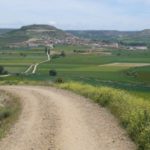How do you restore connection with the Divine?
Awakening :: Week 11
My initial awakening could probably be traced back two or three years before I made pilgrimage in Spain. I had decided to make regular private retreats, and my first was a day spent at the Abbey of Gethsemani in Trappist, Kentucky—former home of Thomas Merton. This was my introduction to the prophetic presence of monastic communities. In the monks’ silence, I encountered the penetrating Presence of God.
What started out as a few silent retreat days per year turned into a quarterly rhythm of overnight private retreats. Though there are many places that have provided solitude and silence for me, one of my favorites and the place I most regularly return to is a small Benedictine monastery in rural Schuyler, Nebraska.
During one of my visits to Schuyler, Kate Hurley’s song, “Hey Little Girl” from her album, Sleeping When You Woke Me, wakened me to some of the pain in my heart that I had previously been numb to. Her song gave rise to haunting questions and painful doubts within me. I found myself asking, What is this pain that I feel? Why am I so sad? Who is this little girl in me and what is her pain?
The descent continued. Questions ran deep as I sat in my little cell at the monastery and cried and cried until I thought I could cry no more. Tears gave rise to words: Who am I really? Am I lovely? Am I loved? Am I really loved for me? Does anyone see me? Does anyone know that I’m alive? Does anyone care? I have dreams to dream! I have a life to live! Does anyone hear me? Does anyone see me?
The root of all these questions was an invitation to realize to a deeper degree of faith that God loves me, truly loves me. Thankfully, I grew up in a Christian home where my parents did everything they could to communicate to me the love of God. For a daughter of a pastor who grew up attending church three times a week, this was Sunday School Lesson 101: “For God so loved the world, that he gave his only begotten Son, that whosoever believeth in him should not perish, but have everlasting life” (John 3:16 KJV). However, the “love” message got somewhat lost amidst the fear of “perishing.” Subtly, the idea that I could do something to avoid perishing became a primary unconscious motivator in my life. Rather than letting the love message sink in, the louder message I absorbed was how to avoid being punished and damned to hell. “God loved the world so much that God sacrificed the Son to save us from hell” didn’t get through to me that well. Certainly over time I grew to want to be in relationship with my Creator and with the one who I was told expressed this earth-shattering act of love for me through a crucifixion. But recognizing, realizing and experiencing the love of God seemed to evade me. The sentiment that we are “sinners in the hands of an angry God” seemed to subtly underline a lot of the “Christian” teaching I received.
This is simply (or complexly, depending on how you look at it) the human condition that we’re all faced with if we awaken to it. We are cut off from our Creator—the one who provides our every need—and we spend our lives trying to return to and live in that all-fulfilling relationship. We long for the Garden—the place that symbolizes the relationship between God and humanity. In the Garden all is right with the world. The true self is free to be expressed in her fullness. Men and women live together in life-giving mutuality. But the sins of self-abnegation and pride ruin this Utopia. We are cut off, fragmented, distanced from God and from one another. It is easier to remain asleep to this reality because it can be downright traumatizing to wake up.
Reflection
- How do you take time to nurture your own inner solitude? If you don’t have a regular practice of withdrawing from your normal active life and spending time alone in silence and stillness, what prevents you from doing so? How important do you think practices of solitude, silence and stillness are to your inner work of healing and freedom?
- When you take time to be alone and listen to the inner stirrings, what do you hear? What questions emerge about yourself and/or about God?
- Do you resonate with the experience of being cut off, fragmented and distanced from God? Why or why not? If you do resonate, what practices or behaviors reinforce the sense of disconnection? What practices restore the connection?
photo credit :: greyerbaby at morgueFile.com, GraphicArtServices.com




